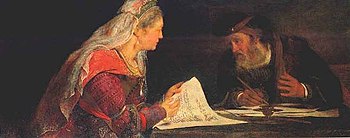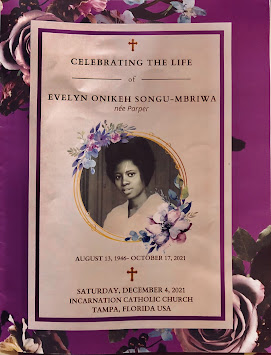“Honour thy father and thy mother…”
Exodus 20:12
“Honor thy father and thy mother, that thy days may be long upon the land which the Lord thy God giveth thee.
Honor thy father and thy mother, that thy days may be long in the land which Jehovah thy God giveth thee.
“Honor (respect, obey, care for) your father and your mother, so that your days may be prolonged in the land the Lord your God gives you.
Regard (treat with honor, due obedience, and courtesy) your father and mother, that your days may be long in the land the Lord your God gives you.
¶ Honour thy father and thy mother: that thy days may be long upon the land which the Lord thy God giveth thee.
Honor your father and your mother so that you may have a long life in the land that the Lord your God is giving you.
Honor your father and your mother so that your life will be long on the fertile land that the Lord your God is giving you.
"Honour thy father and thy mother" (Hebrew: כַּבֵּד אֶת אָבִיךָ וְאֶת אִמֶּךָ לְמַעַן יַאֲרִכוּן יָמֶיךָ) is one of the Ten Commandments in the Hebrew Bible. The commandment is generally regarded in Protestant and Jewish sources as the fifth in both the list in Exodus 20:1–21, and in Deuteronomy (Dvarim) 5:1–23. Catholics and Lutherans count this as the fourth.[1]
These commandments were enforced as law in many jurisdictions, and are still considered enforceable law by some.[2][3][4][5] Exodus20:1 describes the Ten Commandments as being spoken by Yahweh, inscribed on two stone tablets by the finger of God,[6] broken by Moses, and rewritten on replacement stones by the Lord.
Hebrew Bible
Judaism
New Testament
Christian
Catholicism
The import of honouring father and mother is based on the divine origin of the parental role:
According to the teachings of the Catholic Church, the commandment to honour father and mother reveals God's desired order of charity – first God, then parents, then others.[40] Keeping the commandment to honour father and mother brings both spiritual and temporal rewards of peace and prosperity, while failure to honor parents harms the individual as well as society.[41]The pervasive societal effect of obedience or disobedience to this command is attributed to the status of the family as the fundamental building block of society:
The Gospel of Luke notes that, as a child, Jesus was obedient to his earthly parents. For a child in the home, the commandment to honour parents is comprehensive, excluding immoral actions. Grown children, while not obligated to obedience in the same way, should continue to afford respect for parental wishes, advice and teaching.[43]"Filial respect is shown by true docility and obedience. 'My son, keep your father's commandment, and forsake not your mother's teaching. ... When you walk, they will lead you; when you lie down, they will watch over you...'" (Proverbs 6:20–22)[44]
The Church teaches that adult children have a duty to honour their parents by providing "material and moral support in old age and in times of illness, loneliness, or distress".[45]This honour should be based on the son or daughter's gratitude for the life, love and effort given by the parents and motivated by the desire to pay them back in some measure.[46]
The principle of the commandment is extended to the duty to honour others in direct authority, such as teachers, and employers.[47] The commandment to honour father and mother also forms a basis for charity to others when each person is seen, ultimately, as "a son or daughter of the One who wants to be called 'our Father'."[48]Thus, charitable actions are viewed as extensions of the honour owed to the heavenly Father.
Orthodox Church
Father Seraphim Stephens sees "Honor" defined as "Love and Respect", and notes that this commandment is positioned between those that address one's obligations to God and those that relate to how one treats others. "It clearly lays the foundation of our relationship to God and to all other people."[49] Richard D. Andrews points out that, "Every time we do something good, just, pure, holy, we bring honor to our parents."[50]
Protestantism
John Calvin describes the sacred origin of the role of human father (which thus demands honour). The analogy between the honour of parents and the honour of God himself is further strengthened by this understanding that earthly fatherhood is derived from God's Fatherhood. Thus the duty to honour does not depend on whether the parent is particularly worthy. However, Calvin acknowledges that some fathers are outright wicked and emphasizes there is no excuse for sin in the name of honouring a parent, calling the notion "absurd".[51]
The commentary of John Wesley on the commandment to honour father and mother is consistent with the interpretation in the Catechism of the Catholic Church. He summarizes the actions that express honour as follows: 1. An inward esteem of them, outwardly expressed, 2. Obedience to their lawful commands (Ephesians 6:1–3), 3. Submission to their rebukes, instructions and corrections, 4. Acting with consideration of parental advice, direction and consent, 5. Giving comfort and providing for physical needs of aged parents.[53][54] Like the Catechism, Wesley also teaches that the commandment includes honouring others in legitimate secular authority. He also encourages people toward honour of those in spiritual leadership with the question, "Have ye all obeyed them that watch over your souls, and esteemed them highly in love for their work's sake?" This question is reminiscent of Paul's statements to the church in Galatia and to Timothy.[55]
Matthew Henry explains that the commandment to honour father and mother applies not only to biological parents but also to those who fulfill the role of mother or father. He uses the example of Estherhonouring her guardian and cousin Mordecai:
The commandment itself encourages obedience "so that you may enjoy long life and that it may go well with you".[57] Henry, Wesley and Calvin affirm the applicability of this promise for all who keep the commandment, though each notes that for the New Testament Christian, the promise may be fulfilled as earthly rewards and/or heavenly rewards, as God sees fit in his wisdom and love for the individual.
In his commentary, Calvin notes the harsh consequences required in Exodus and Leviticus for specific failures to keep the commandment. Those who struck or cursed a parent were to be sentenced to death.[58]Persistently disobedient sons were to be brought before the city elders and stoned by the whole community if the parents' testimony was judged to be accurate.[59]Calvin writes that God knew capital punishment for these offences would seem harsh and be difficult to pronounce, even for those responsible for adjudicating the situation. This is why, he argues, the text specifically places responsibility for the consequences on the offender. The severity of the sentence emphasized the importance of removing such behaviour from the community and deterring others who might imitate it.[60]
Although Calvin refers mostly to fathers in his commentary on the commandment to honour father and mother, he writes near the beginning that the commandment mentions both parents on purpose.[52] As described above, Proverbs supports the value of guidance from both father and mother,[61]and Paul specified that children should provide for their own widowed mothers and grandmothers, "which is pleasing to God".[62]
Just as "honor" involves offering profound respect, the opposite of honoring someone is to trivialize him, as if of no importance.[36]
Respect is not something based solely on personal or professional qualifications, but also on the position that God has given that person. In 1 Samuel 26 David spares Saul's life, even at the risk of losing his own, submitting to the authority God had placed over him as anointed king.[36]













